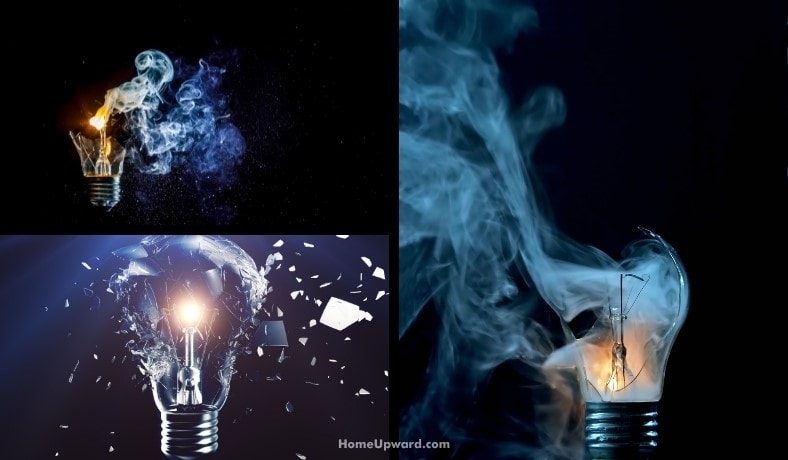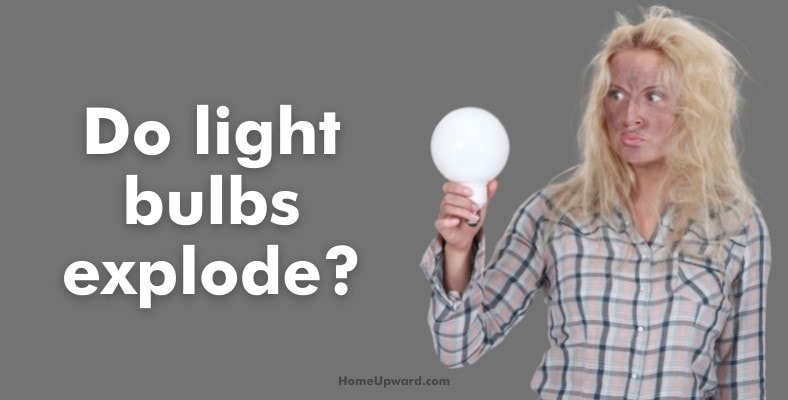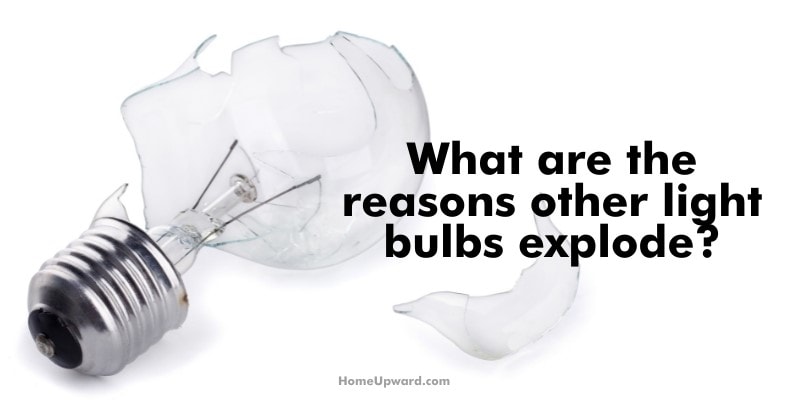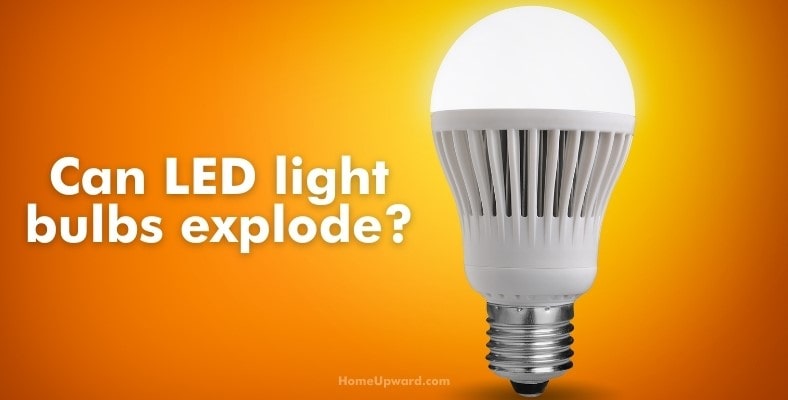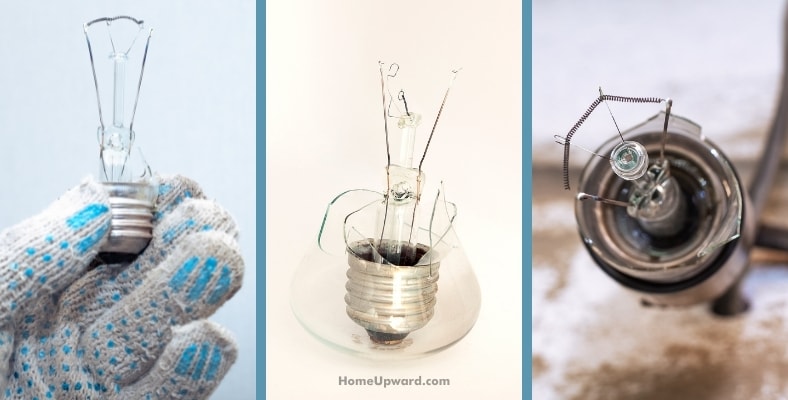Light bulbs aren’t perfect. While it’s true that most just “go bad” one day after you’ve used them for a long time, they can do something much worse.
Here you’ll learn more about I mean plus why it can happen – and more helpful details, too.
Contents
Do light bulbs explode?
The truth is that nearly any type of bulb can explode and there are multiple reasons that this can happen. In some cases it can be down to a lack of insulation at the base of the bulb. This means there may be a chance that the manufacturers of said light bulb didn’t use enough insulation at the base of the bulb.
- A lack of insulation at the base of a bulb can cause the metal base to melt and the gas inside the bulb then leaks out which causes a pressure imbalance, and thus the bulb explodes.
- There could also be a loose connection in the socket. A loose connection will cause the electricity to jump across the contact instead of flowing through it as it should. This can lead to the fitting becoming overheated which then causes the bulb to blow to explode.
There’s a simple solution to this problem – you should just tighten up light bulbs in their sockets, so they’re nice and snug.
Other basics to know
Light fixtures are designed to operate with certain types of light bulbs due to particular wattage ratings. If a bulb exceeds the fixture’s wattage limit then the fixture can overheat which can put the bulb at risk of a possible explosion.
Check the side of the fixture to see what the recommended light bulb wattage is. If it’s not there, contact the manufacturer to find out, or use a bulb with a super low wattage rating.
Finally, oil from your hands can also cause explosions in some bulb types- specifically halogen bulbs. You may not think of your skin as being oily, but to a halogen bulb, it is in fact. Skin oil is a bad thing for halogen bulbs and can cause an explosion due to hot spots on the glass.
If a halogen bulb is switched on and the oil on the surface heats up, cracks will appear, gas will leak out, and you can end up with an exploding bulb. I also recommend avoiding touching automotive bulbs for the same reason – especially halogen 9004 and similar replacements.
This is especially true for high-performance xenon gas bulbs.
What are the reasons other light bulbs explode?
The most common cause of light bulbs exploding is a manufacturing defect in which there’s not enough insulation at the base of the bulb. This can cause the base to melt and the gas that is stored inside the light bulb to leak.
When this happens the pressure difference makes the light bulb explode. There are plenty of other reasons why a light bulb may explode though.
Faulty manufacturing and wiring is also a possible culprit for exploding light bulbs. Similarly, if an incandescent bulb does not have a high-quality seal, condensation can occur inside the bulb and this will also cause an explosion.
Not all bulbs will explode though. For example, LED bulbs are very loved nowadays, this is because they are known for not being big on explosions. Halogen light bulbs, on the other hand, are the most common bulb type to explode.
Not only are they hotter than incandescent light bulbs, but if there is any form of oil on the bulb then this is most likely why the bulb exploded. As a rule you should wear gloves or use a cloth or paper towels when replacing this type.
This prevents oil from getting onto the bulb. As clean as we like to think we are, human skin is always releasing oils during the day.
Can LED light bulbs explode?
Any light bulb will degrade over time, this includes LED bulbs, but this doesn’t mean that catastrophic failures can’t happen. They do happen, even with LED bulbs. It is very, very unlikely that LED bulbs will explode as they don’t have a vacuum sealed body or gas under pressure like other types.
Instead of one or more filaments like traditional bulbs, LED bulbs emit light through a semiconductor junction and are powered through a miniature power supply designed into the base.
In very rare cases thermal or electrical stress can be caused by voltage surges, faulty capacitors, or poor heat management which can then lead to LED bulbs exploding to a minor degree. However, generally they’ll simply fail completely, get one or more dark spots, or begin flickering.
It is possible, however, to blow an LED bulb by using a lower voltage model in a higher voltage socket. This can cause it to blow, pop, smoke, and potentially even catch on fire! Never use a 110V bulb in a 220V socket or vice versa.
What happens if a light bulb explodes?
- If a bulb explodes make sure the power is turned off. You definitely don’t want any power going to a shattered bulb.
- You should also clean up carefully by sweeping and vacuuming – light bulb glass is sharp and can be dangerous to bare feet or hands. However, be away that not all vacuums have good suction and therefore might not pick up all the glass bits (see below).
- You need to turn off the power and wait for it to cool down before cleaning up or removing the blown bulb.
- In addition (or instead of) using a broom and vacuum, use damp towels or wet wipes and if you can’t find any fragments use tape to find them. Duct tape is a good option for this.
If possible, a shop vacuum is often a lot better suited for picking up shattered glass. I always get down at eye level on the floor after making several sweep, clean, and vacuum iterations before checking again.
hattered bulbs can leave very tiny glass shard you won’t see easily so the best practice is usually to assume there’s still some there and clean several more times.

